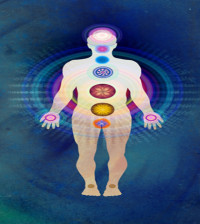- 5 Tips To Finding Peace Within Yourself
- The Do’s and Don’ts of Learning How to Accept Yourself
- How to Find Your Inner Peace and Transform Your Life
- 8 Benefits of Having an Open Mind and How to Get One
- Learn How To Be A Happier Person
- What Is The Meaning Of Life?
- Laws of Abundance – The Riches of Love and Joy
- How to Be Laid Back By Following These 9 Simple Strategies
- The meaning of confucius’ golden rule – 4 practical ways of living it
- 3 methods of unleashing the power of contentment in your life
Six Simple Ways to Control Anxiety Attacks

Have you ever experienced an anxiety attack? If so, you are one of millions who suffer with this condition. It is estimated that around 2.4 million U.S. adults suffer with panic disorder or generalized anxiety. Anxiety is a mental health symptom that can wreak havoc on your daily life and alter your social life. Anxiety attacks are truly terrifying events that occur without reason or warning. If you are tired of taking medication that takes hours to work, try these six simple ways to control anxiety attacks.
Am I having an anxiety attack?
Some people aren’t even aware of when they are experiencing an anxiety attack. The symptoms vary from individual to individual, and not everyone has all symptoms. Understanding the different feelings associated with these spells can help you become better prepared to handle them. Part of how to control anxiety attacks is recognition of the odd emotional and physical disturbances that go along with this condition.
Some of the signs and symptoms of an anxiety attack include:
- Sweating for no good reason
- Burning sensations throughout your muscles and skin
- Difficulty hearing, as though your ears all of a sudden become plugged
- Intense inner turbulence, emotional distress, or other disruptions
- Confused thoughts and overwhelming emotions arising abruptly
- Feelings as though you are losing grip on reality or your personality
- A sense of impending doom, as if something terribly wrong is about to happen
- Intense fear, negativity, or disproportionate apprehension
- Worrying you may lose control or go crazy
1. Meditation
Meditation involves sitting comfortably and quietly for a while focusing on some simple internal stimulus or an external one. This could be your breathing pattern, a word or short phrase, or a visual object. Through meditation, your body and mind relaxes to allow you to focus your attention positively. One of the benefits of meditating is that it allows you to gain control of your physical tension through a calming response. Studies show that the blood pressure, heart rate, and respiratory rate all decrease with the practice of meditation. As you meditate, you increase your ability to control your fretful thoughts.
2. Talk
Talking with someone can automatically lessen anxiety. If you feel an attack coming on, get in contact with a family member or friend, and chat about something that makes you happy. If you love your dog, talk about him. If you have a new dress, tell a friend about it. Talking eases anxiety quickly, so the sooner you engage in a conversation with someone you trust, the better.
3. Acknowledge and Accept
Don’t resist or yield to your anxious feelings. You must acknowledge and accept that you are anxious. Pretending that you do not have anxiety will not make it leave. Read about it, learn about it, and prepare for it. The best way to tackle these emotions is to first know that they do exist.
4. Relax
Regardless of what you have to do each day, take a little time for relaxation. This lowers the heart rate and blood pressure. Go for a nice walk, listen to classical music, try some deep breathing. Do a few minutes of relaxation every couple of hours to ward off anxiety attacks.
5. Distract Yourself
Keep busy and stay focused. If you don’t have idle time to become anxious, you won’t experience an attack. When you do feel your nerves getting the best of you, distract yourself with a phone call, a short read, or some quick exercise.
6. Practice Mind over Matter
How to control anxiety attacks with mind over matter is simple. First of all, assume that the attack is coming on. Secondly, know that you will survive, as you have before. Finally, keep the mind over matter attitude. Believe in yourself and think positively.








































You must be logged in to post a comment Login